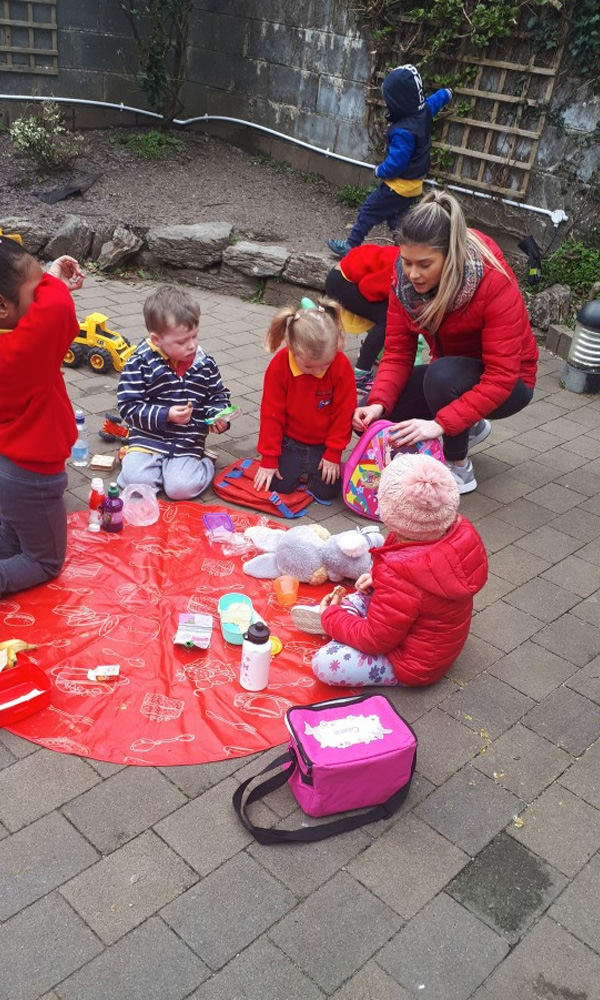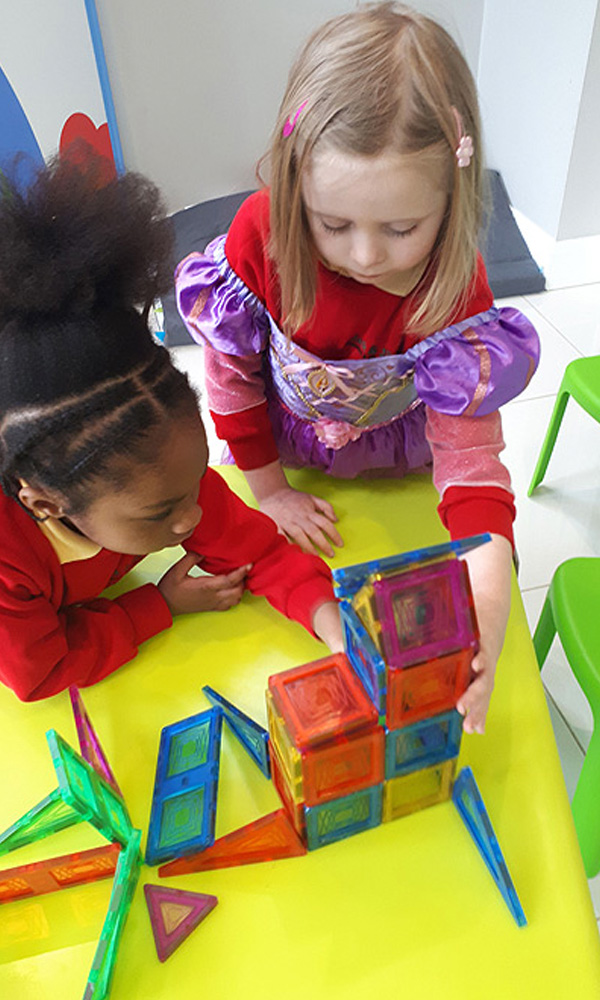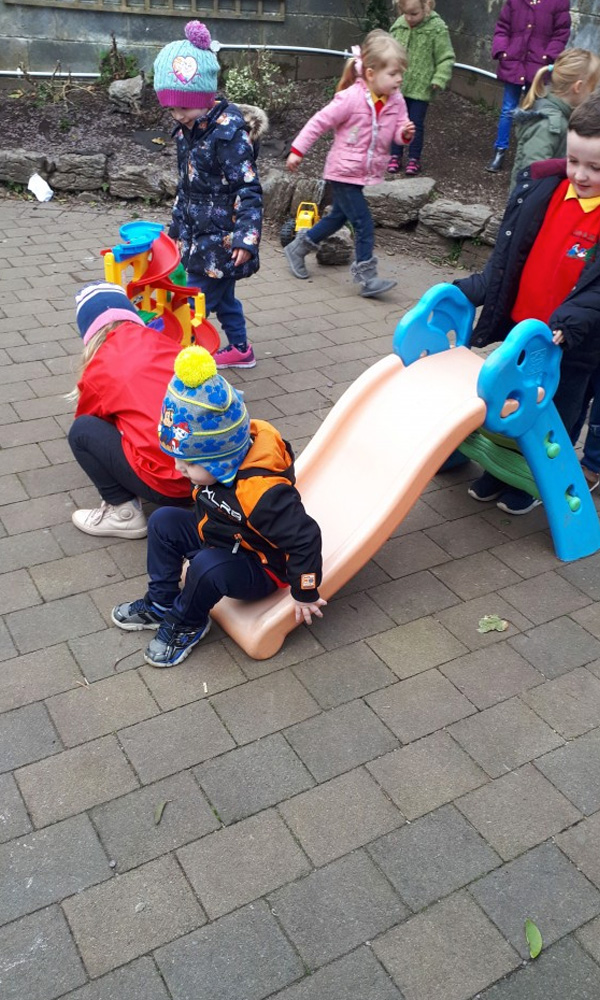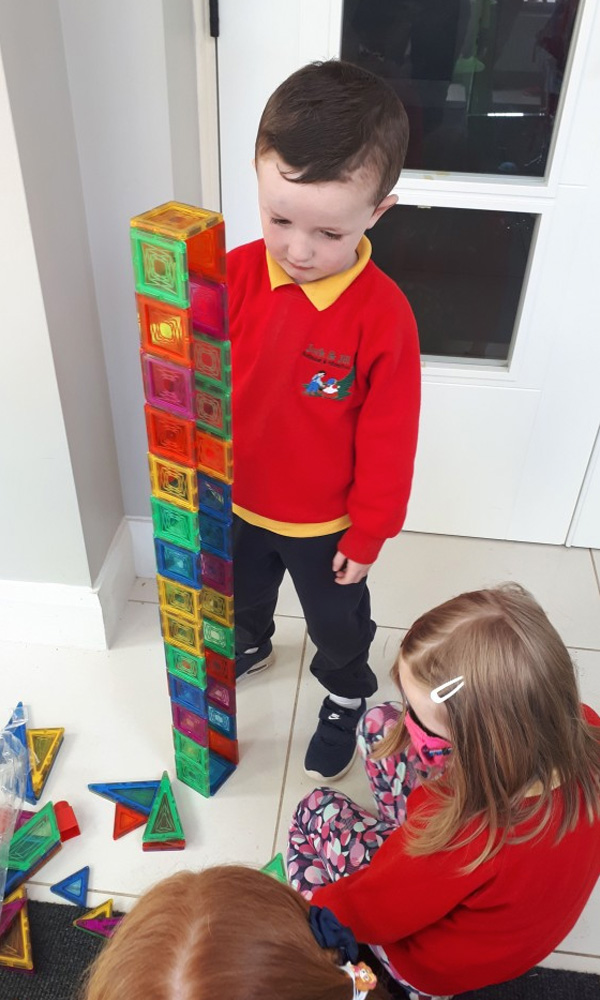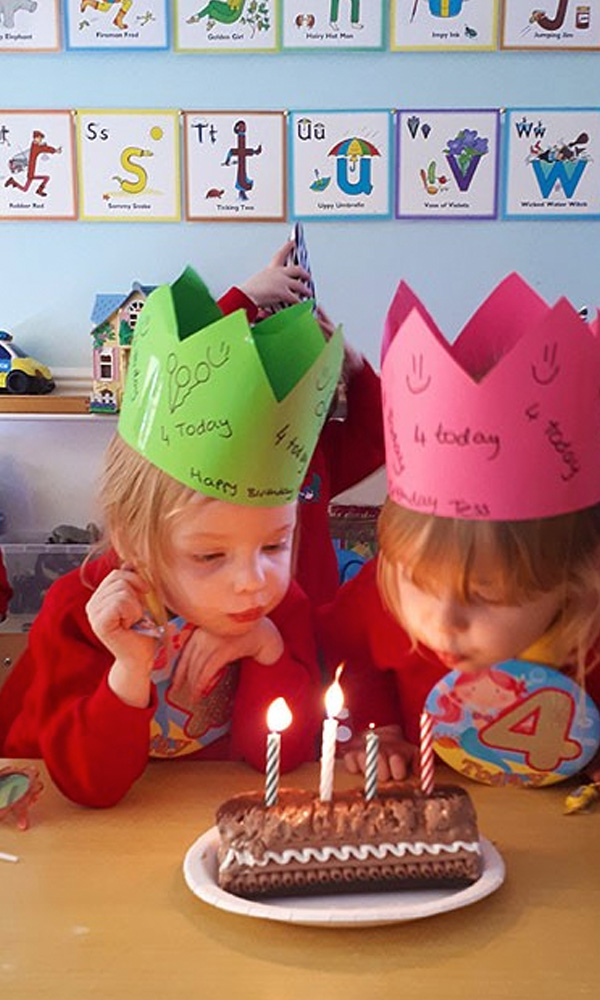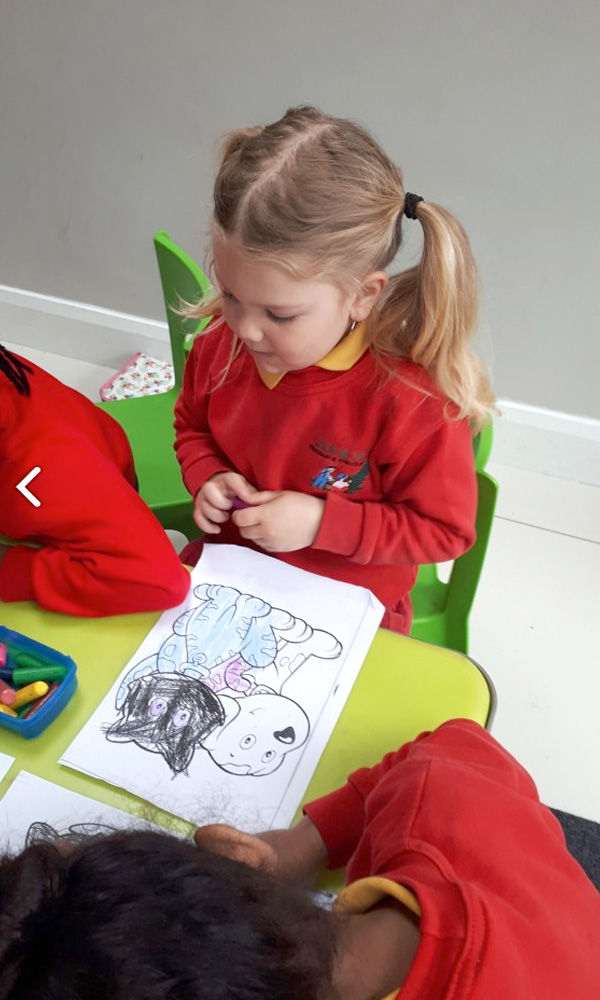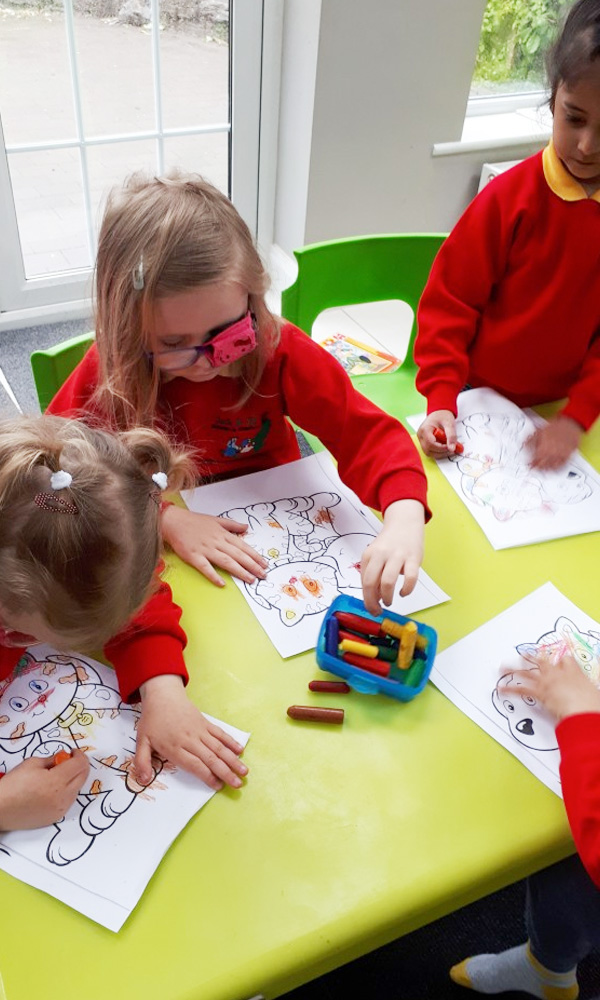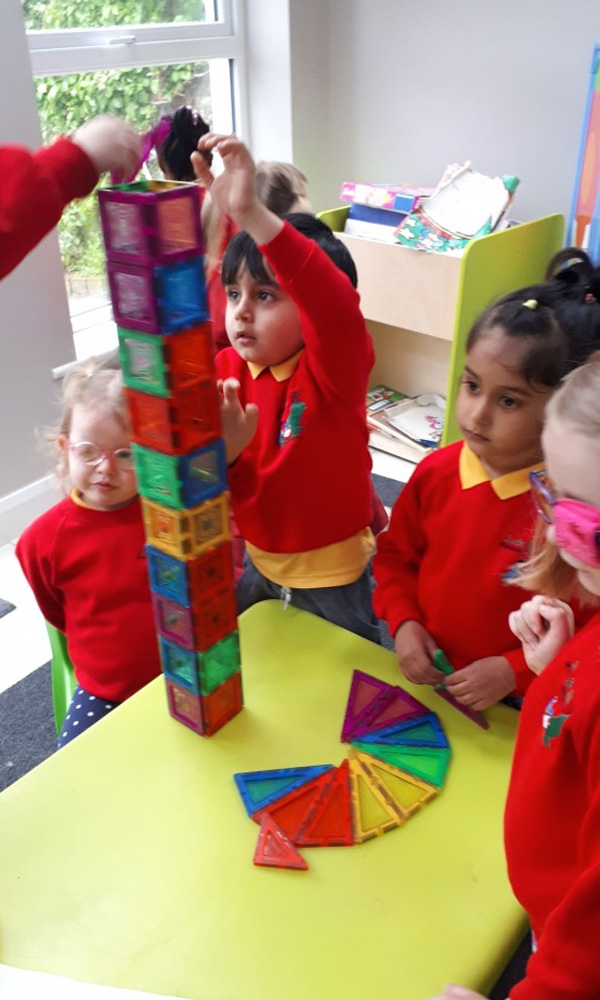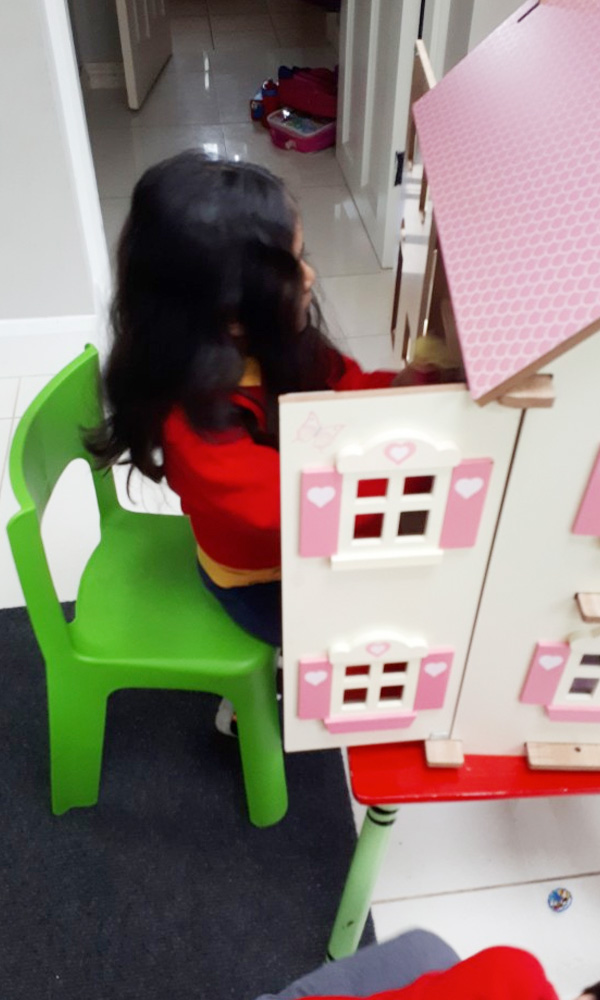
Jack and Jill participate in the ECCE scheme, whereby each child is entitled to two years of free playschool education in the year prior to starting primary school. In order to qualify for this scheme a child must be two years and eight months old by September, in the year they are starting. The scheme provides children with three hours school per day over a period of 183 days per year.
Entrance Requirements for non ECCE Scheme
Jack and Jill Montessori provide a service for children outside the ECCE scheme. This service extends to children who are in the two years and eight months to six years old group.
Operating hours for Jack and Jill Montessori
School Day
School begins at 9:00am each morning and closes each day at 12:00 mid-day. Children may only be collected by those listed in the enrolment form unless we are informed in advance of somebody different picking up the child. The front door is locked at all times, parents and carers must ring the front door bell to gain entry for drop off or collection.
School Calendar
Our preschool terms work in tandem with the standard primary school terms and holidays. A school calendar is available and please note in particular the holidays and days off as detailed. In the event of unforeseen closure families will be contacted by telephone or a substitute teacher will be available for the day.
School Uniform
The school uniform comprises of a yellow t-shirt together with a red sweatshirt both of which have the school logo. This uniform can be obtained from the National Schoolwear Shop, Liosban Industrial Estate, Tuam Road, Galway or in Anthony Ryans, Shop Street, Galway. Trousers are a matter of choice for each individual parent/carer but we would suggest that same may be navy and can be purchased at any clothes shop of your choice.
Policies
Copies of all the policies and procedures are available for you to read at the Montessori. These policies help us to ensure that the service provided by the setting is a high quality one and that being a member of the setting is an enjoyable and beneficial experience for each child and his/her parents/carers.
Curriculum
Aistear
The provision for children’s development and learning is based on the early childhood curriculum framework called Aistear also adhering to the guidelines of Siolta.
What is Aistear?
Aistear is an Irish early years education curriculum designed specifically for childcare practitioners planning learning experiences for children aged from birth to six years of age. It is designed for use in all early childhood care and education settings including the home, crèche, nursery, play schools (for eg. Eclectic, High- Scope, Montessori, or Frobel approaches), national and junior infant classes).
What is Aistear made up of?
The two main parts of Aistear are the principles and themes and guidelines for good practice. Other elements to Aistear include the user guide and key messages from the research papers.
The principles and themes:
Aistear is based on 12 principles presented in three groups which are crucial to and underpin early learning and development. They are:
(1) Children and their lives in early childhood.
– The child’s uniqueness
– Equality and Diversity
– Children as Citizens.
(2) Children’s connections with others.
– Relationships.
– Parents, family and the community.
– The adults role.
(3) How children learn and develop
– Holistic learning and development.
– Active learning.
– Play and hands on experiences.
– Communication and language.
– The learning environment.
Early learning and development is presented in four inter-connected themes in Aistear.
1. Well Being.
2. Identity and belonging.
3. Communicating
4. Exploring and thinking.
Siolta
The National quality framework for early childhood education.
The principles of Siolta are as follows:
1. The value of early childhood.
2. Children first.
3. Parents.
4. Relationships .
5. Equality.
6. Diversity.
7. Environments.
8. Welfare.
9. Role of the Adult.
10. Teamwork.
11. Pedagogy.
12. Play.
The Montessori curriculum
“Within the child lies the fate of the future” – Maria Montessori.
The Montessori curriculum comprises of five subject areas. They are practical life, sensorial, language, maths and culture. Maria Montessori based her curriculum on her observations of children at various ages and developed her method based on these observations. Throughout the ‘work time’ the children are introduced to various materials in the five areas, on a one to one level with his/her teacher.





